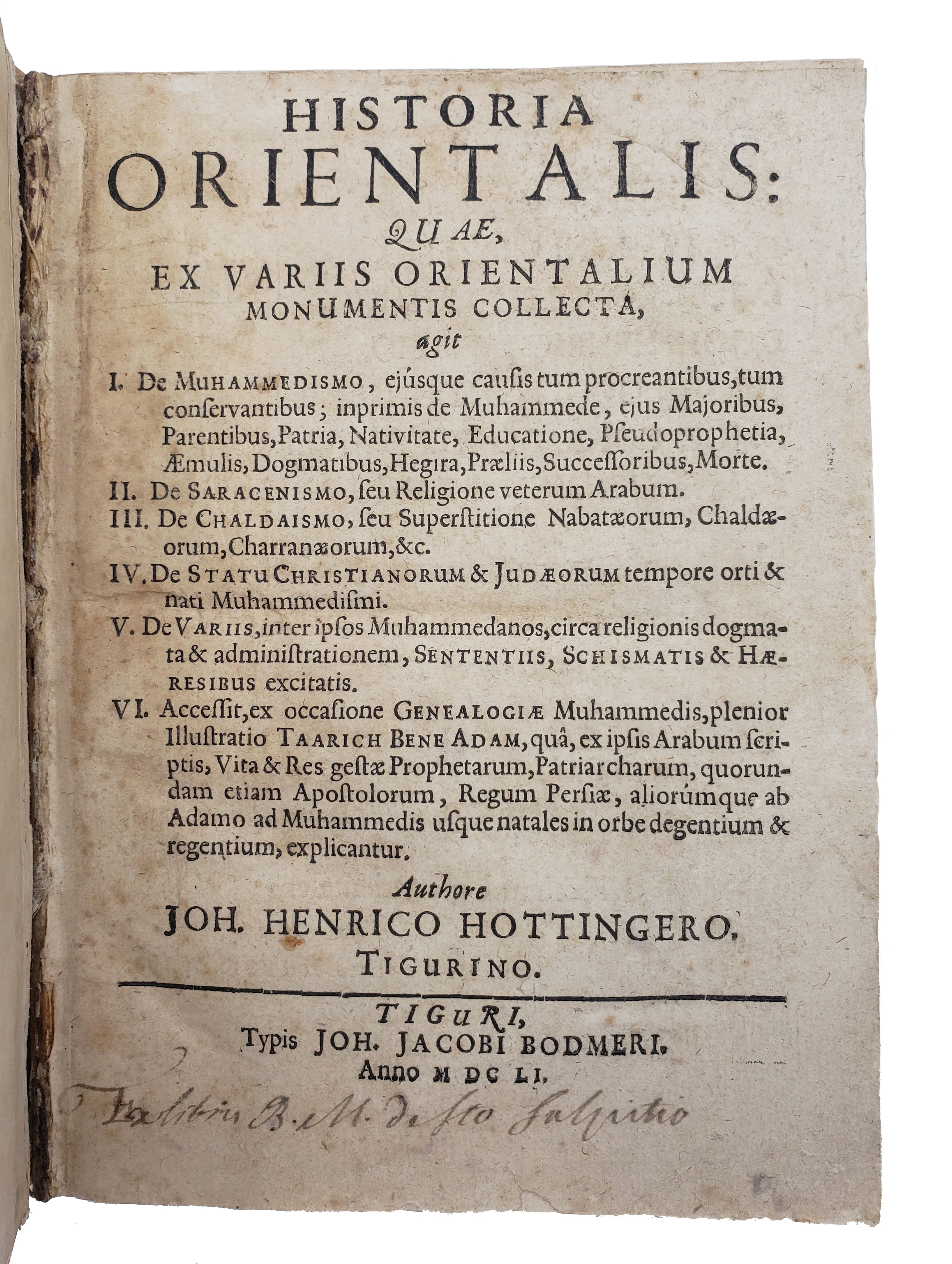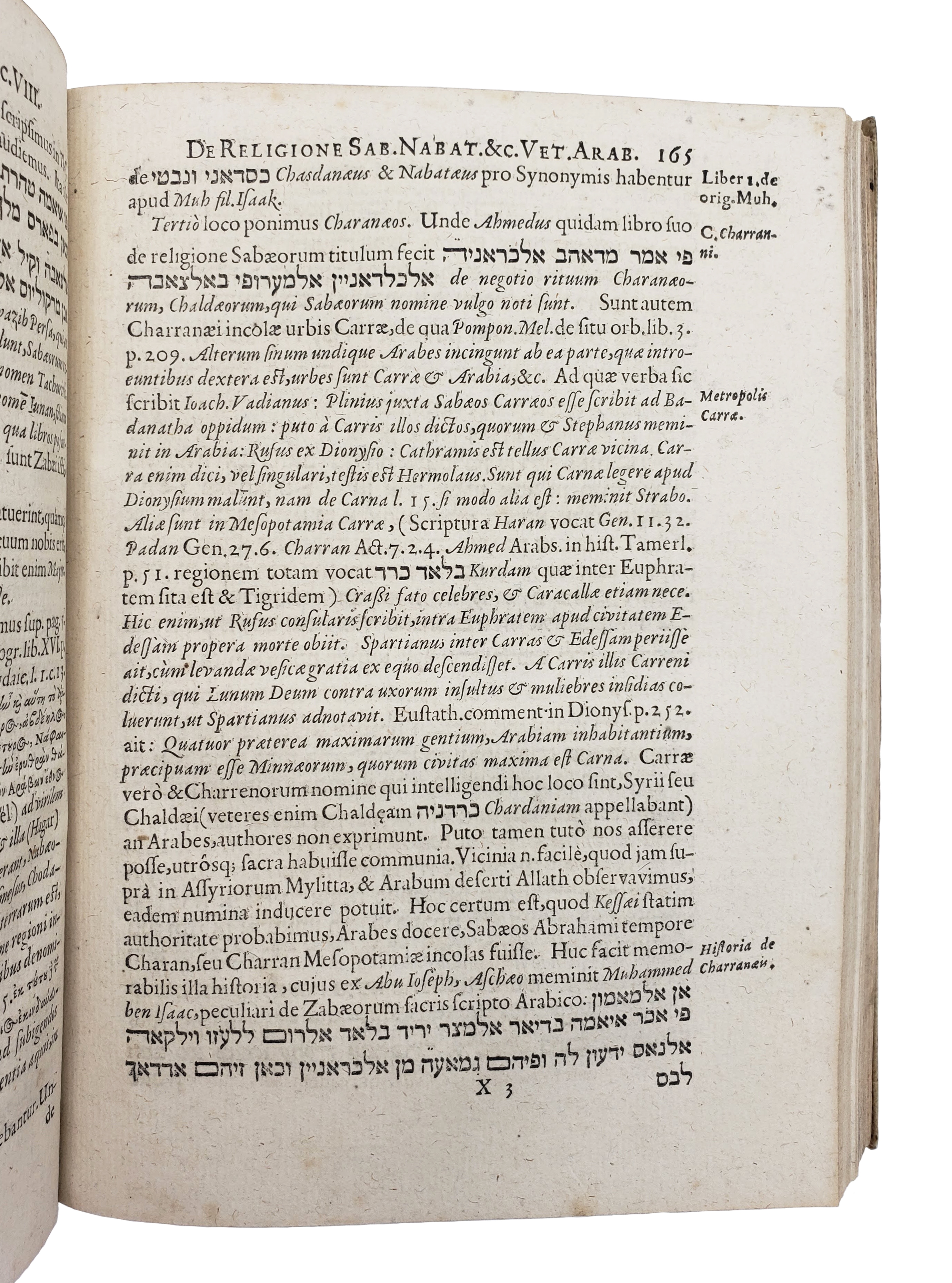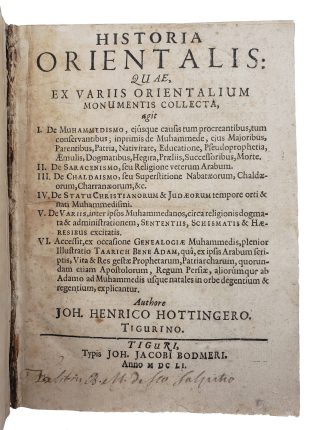HOTTINGER, Johann Henrich
GROUNDBREAKING MIDDLE EASTERN STUDIES
Historia Orientalis.
Zurich, Typis Joh. Jacobi Bodmeri, 1651.£2,350.00
FIRST EDITION. 4to. pp. [16], 373, [23]. Roman and Italic letter, with Hebrew, little Greek. Decorated initials and ornaments. Slight water stain to early gatherings, title a trifle softened, text block very slightly detached at front. A good copy in modern vellum. Cont. ms ‘Ex Libris B.M. de S[an]cto Sulpitio’ (probably St Sulpice, Paris) to title.
The first edition of this important history of the Middle East, based on Arabic epigraphic inscriptions and manuscripts – ‘a groundbreaking account of the history and basic tenets of Islam which relied almost entirely on authentic Islamic sources’ (Loop, p.170). J.H. Hottinger (1620-67) was a Swiss theologian and philologist, and professor of Oriental languages at Heidelberg. He took Arabic classes from Ahmed Ibn Ali in Leiden, and was part of a large network of Protestant European scholars and Orientalists, who helped him source several mss he used for ‘Historia Orientalis’. Hottinger applied C17 methodologies for research in Church and Sacred History – eminently rooted in philological research and antiquarianism – to the study of Middle Eastern culture and religion, albeit through the critical and sceptical lens of Protestant Christianity. The six parts examine the life and death of the Prophet and the birth of Islam, with a description of Arabia; ‘Saracenism’ or the religion of the ancient Arabs; the religion of the Nabateans, Chaldeans, etc.; Christianity, Hebraism, and the rise of Islam (Hottinger identified the inner divisions of the early Christian churches as a cause for the development of Islam); various ‘schism’ and ‘heresies’ of Islam (having here misinterpreted the status of the four Sunni schools of law); and the genealogy of the Prophet. Each section comprises copious Arabic quotations, yet, due to a delay in the supply of Arabic type, all were transliterated into Hebrew characters, with ‘niqquds set under or above certain Hebrew letters to cover the whole Arabic alphabet’ (Loop, p.189). Among his sources on the tenets of Islam included Ibn Abī Zayd al-Qayrawānī and al-Ghazālī, whilst he made extensive use of a ms roll of the ‘Subhat al-akhbār’ for the genealogy of the Prophet, and of the tenth-century ‘Kitāb al-Fihrist’ by Ibn al-Nadīm, then unknown in Europe (Loop, pp.185-6, 194). An important early European work on Arabic history and culture, and Islam.
USTC 6138565; VD17 23:237169Q. J. Loop, ‘Johann Heinrich Hottinger (1620-1667) and the \\\\\\\\\\\\\\\\\\\\\\\\\\\\\\\\\\\\\\\\\\\\\\\\\\\\\\\\\\\\\\\"Historia Orientalis\\\\\\\\\\\\\\\\\\\\\\\\\\\\\\\\\\\\\\\\\\\\\\\\\\\\\\\\\\\\\\\"’, Church History and Religious Culture, 88 (2008), pp.169-203.




